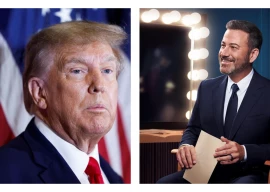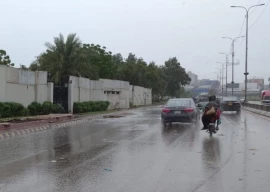
A Pakistani trade exhibition in New Delhi and the opening of an integrated trading check post at the Attari-Wagah Border (enough to handle 600 trucks a day) has been the occasion for announcing a breakthrough between Pakistan and India, including allowing Pakistani direct investment into India. Other agreements are significant and make clear the intent on both sides to “normalise” relations through crossborder economic activity: 1) a second integrated check post on the border at Attari connecting the two Punjabs (which was inaugurated on April 13. 2) Opening of each other’s bank branches in their territories to facilitate financial transactions; 3) review by India of the sensitive list of tradable items from Pakistan; and 4) opening of negotiations in hospitality, education and tourism sectors. Of course, this will take time in reaching fruition as India is slow in opening itself up commercially and Pakistan slow in leashing its non-state actors as gestures of confidence-building. Another India-Pakistan get-together on the Punjab border was even more promising because it indicated a big green signal from the main opposition party that rules in Pakistani Punjab. Reopening Attari means an opportunity to overhaul the infrastructure for the easing trade and tourism that is on the cards as the two sides undertake liberalisation of the visa regime. Chief Minister Shahbaz Sharif who was at Attari said something revolutionary given his party’s conservative leanings: “If Western Europe can have a single currency after decades of enmity, why is it impossible for India and Pakistan?”
It is the two currencies that will likely produce delays on the India side as far as the real free trade is concerned. The Indian rupee is almost double the value of Pakistani rupee which means a lot of Pakistani goods will find easy market in India and anything brought into Pakistan through normal channels will not sell easy, as we may discover during the negotiations over import of Indian electricity. Yet on the other hand, India is residually protectionist as far as the Indian bureaucratic instinct is concerned and there are other formidable non-tariff barriers as well. India’s thinking about possible Pakistani investments into India is probably based on the Pakistani trend of seeking foreign safe havens after despairing over the future of law and order in the country. With the situation in Afghanistan far from certain, and with the Americans leaving in 2014, the expected blowback from the jihadi enthusiasm of Pakistan’s non-state actors, it is possible that capital will flow out of the country.
But will India make itself as open to foreign direct investment (FDI) as China and other Asian economies? So far the picture is not promising. Last year, a report on FDI in India was very critical on the basis of what foreign companies came up against: corruption and bureaucracy, obtaining land, exclusion from railways, legal services, majority stakes, insurance, domestic airlines, retail business, etc. The big foreign complaint is about lack of complete ownership of businesses. But the Indian bureaucracy is said to be waking up from its introverted slumber as global realities dawn and India becomes aware of the benefits it will reap by becoming the central engine of growth of the South Asian market. India’s neighbours, too, are waking up as well to all of this. Bangladesh has moved quickly to offer the infrastructure India needs to reach across Bangladesh. In Pakistan, both the PPP and the PML-N are in favour of opening up in the face of the activities of Pakistan’s non-state actors.
India’s energy crisis is going to stay as its economy requires steady growth and seeks to avoid the cycle of boom and bust, which means it will look to sources of energy in Central Asia with the help of territorially median Pakistan. On the other hand, Pakistan will have to learn to avoid jihad in neighbouring states or face a gradual failure of the state. It is already late given the dire state of Pakistan’s economy. The real rulers of Pakistan must think of survival now. Of course, the non-state actors are beyond redemption but the Pakistan military, one hopes, is on board.
Published in The Express Tribune, April 15th, 2012.
COMMENTS (5)
Comments are moderated and generally will be posted if they are on-topic and not abusive.
For more information, please see our Comments FAQ











































its very clear from the international diplomatic point of that when French , British and Germans could be on one page for economic and strategic gains than why not Pakistanis and Indiaian! pak-India composite dialogue is need of the hour and it must be continued in any circumstances.
What else this government can do more to get some rating from so called civil socity organizations, midea and political point scoring expert/poilitician/midea persons. Perhaps it appears that they have decided to " not to care about non sense talk" and let us do the job.
Well done coallition partners. A Peshawary
Friendship with India is more important than relations with USA. America is a bully. War mongering is part of its character. Thaw with India may not bring results immediately, but if the hate concept is removed by trust, it will solve many other issues in due course. And if an american tells you that US is a peace loving nation, do not even bother to contradict, it would be a waste of time.
Very well written editorial.
This is what confuses me about Pakistan. One one hand you have people who can think clearly and articulate clearly and on the other hand you have hafees Saeeds and Osamas in your compound.
Why an overwhelming majority cannot support what is so clear, instead of obscurantist liars?
"Of course, the non-state actors are beyond redemption but the Pakistan military, one hopes, is on board." This is the current status of Pakistan, very well said.